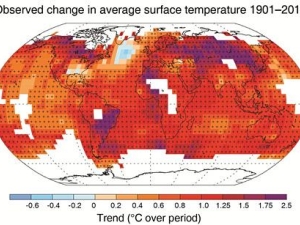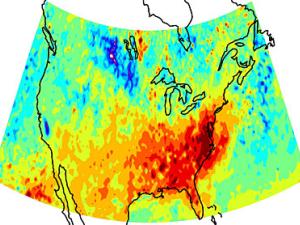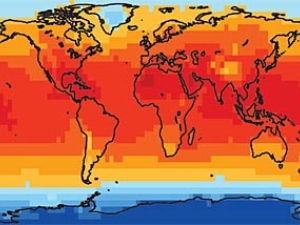

Research Bio
Inez Fung is a professor of atmospheric science. The climate of the Earth is intimately tied to the composition of the atmosphere and the dynamics of the underlying surface. The atmosphere and land surface exchange energy, water and other trace substances on all space and time scales. The exchange is dependent on and, in turn, determines the states of the atmosphere and biosphere themselves. Inez Fung's research in the past decade has focused on the many aspects of biosphere-atmosphere interaction, with the goal of gaining predictive capability of how atmospheric composition and climate may co-evolve in the future. Current research is focused on the influence of lithology and subsurface water storage on tree resilience during droughts.
Research Expertise and Interest
climate change, carbon cycle, terrestrial biosphere
In the News
President Biden appoints Saul Perlmutter, Inez Fung to science advisory council
London’s Royal Society elects four from Berkeley
Hidden ‘rock moisture’ may be key to tree survival during drought
Climate series: How do we verify climate treaties?
Inez Fung leads U.S. team in joint report on climate change
Two of the world’s most eminent research institutions from the United States and the United Kingdom issued a joint publication today (Thursday, Feb. 27) that distills climate change science.
Eel River Observatory seeks clues to watershed’s future
University of California, Berkeley, scientists will receive $4,900,000 over the next five years to study the nearly 10,000 square kilometer Eel River watershed in Northern California and how its vegetation, geology and topography affect water flow all the way to the Pacific Ocean.
Newly released climate change report reinforces need for action
The release today (Friday, Sept. 27) of Assessment Report 5, a new report by the Intergovernmental Panel on Climate Change (IPCC), bolsters the conclusions of its 2007 report that humans are responsible for global warming, and it highlights the need for immediate action to reduce carbon emissions.
Summer haze has a cooling effect in southeastern United States, says new study
Global warming may include some periods of local cooling, according to a new study by UC Berkeley researchers. Results from satellite and ground-based sensor data show that sweltering summers can, paradoxically, lead to the temporary formation of a cooling haze in the southeastern United States.
Summer peak, winter low temperatures now arrive 2 days earlier
Not only has the average global temperature increased in the past 50 years, but the hottest day of the year has shifted nearly two days earlier, according to a new study by scientists from the UC Berkeley and Harvard University.









